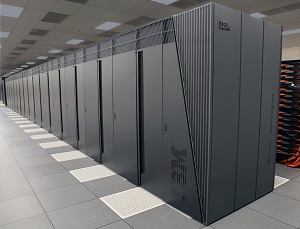Big data, CSR and sustainability

Big data analytics seems entirely absent in research on Corporate Social Responsibility (CSR) and sustainability. Yet the potential of big data to advance environmental and social concerns is enormous.
Big data analytics is about analysing very large structured datasets (e.g. those drawn from financial records and stock exchanges) and unstructured datasets (e.g. those generated by emails, tweets and GPS signals) that often cannot be analysed using traditional statistical methods. It opens up entirely new possibilities for spotting previously unnoticed patterns and anomalies.
In our research published in the British Journal of Management last year, we found that big data capabilities of managers are linked to higher sustainability of their organization. We surveyed 175 top management representatives (chief executive officers and managing directors) in food import and export firms headquartered in the UK and New Zealand. Our results from structural equation modelling indicated that big data competencies of top managers help towards environmental practices. What we still do not know is what specific technical or relational big data competencies would be best to advance sustainable practices and how.
What is the potential of big data in sustainability?
There is exponential growth of big data volumes driven by technology advances and lower equipment costs. Let us take a few practical examples from the oil and gas sector that I am familiar with. For example, Chevron’s Tengiz oil field in Kazakhstan has about one million sensors. Combined with real-time weather data and other types of data, big data generated by such equipment can be used to provide near-real-time alerts and help prevent accidents. Similarly, big data from safety inspections, location devices and drone photography can be used to develop predictive analytics to improve safety. In the area of transportation, for example, Devon Energy in the United States apply big data analytics to monitor the speed and location of their vehicle fleet and the need to evacuate workers in areas where hydrogen sulphide is located.
Big data has also been used in human development. The UN established Global Pulse, a big data lab in New York with satellite offices in Kampala and Jakarta. For example, in Indonesia, Global Pulse applied mobile phone data to understand food price fluctuations, and in Uganda, population movements. Non-governmental organizations and initiatives - particularly in health services – are also using big data (e.g. Médecins sans Frontières, Global Viral Forecasting Initiative).
Indeed, the donation of data by companies (or ‘data philanthropy’) has become a CSR activity by itself. For example, IBM and other companies regularly host ‘Open Data’ events (‘jams’ and ‘hackathons’) in which governments, NGOs and companies are encouraged to release data that can be used for some social or environmental purposes.
In a few countries, there is also some regulatory pressure for big data adoption. In the United States, the Deepwater Horizon disaster influenced debates about better process indicators for improving health and safety in offshore oil drilling. For example, the U.S. Bureau of Safety and Environmental Enforcement (BSEE) requires offshore oil drillers to monitor critical safety equipment in real time and then archive the related data onshore – which generates huge volumes of data. More indirectly, government mandates for energy efficiency, climate change and other environmental restrictions have spurred some companies to use big data analytics towards environmental improvements.
So why is so little work done to apply big data?
There are open-source applications such as Apache Hadoop and IBM’s BigSheets that have made big data analytics more accessible to individuals and organizations around the world. So why is so little work being done to apply big data analytics for sustainability?
Part of the explanation may be that a lot of good work may remain unnoticed under the radar screen. Despite the attraction of the topic, the academic community and some popular media outlets do not seem to find this of interest, or perhaps the researchers and writers may feel out of their depth in writing about big data.
Another part of the explanation is that companies have largely focused on big data analytics to improve financial performance, for example, by mining customer data to help sell more products, applying big data analytics to effectively manage inventories or – in the example of the oil sector – using data from sensors to facilitate exploration and production operations.
CSR and sustainability seem to have been left behind. When I spoke with a number of CSR advisers in the oil and gas sector recently and tried to get their companies to support my research, I was told things like ‘I couldn’t sell this to my boss’. However, if you really want to tackle sustainability in new ways, you sometimes need to move outside of your comfort zone. This is what I have done.
Prof. J. George Frynas is Professor of Strategic Management at The Open University Business School. This blog is partly based on the article “Essential Micro-Foundations for Contemporary Business Operations: Top Management Tangible Competencies, Relationship-Based Business Networks and Environmental Sustainability”, British Journal of Management, 29(1), 43-62, 2018. Contact George

